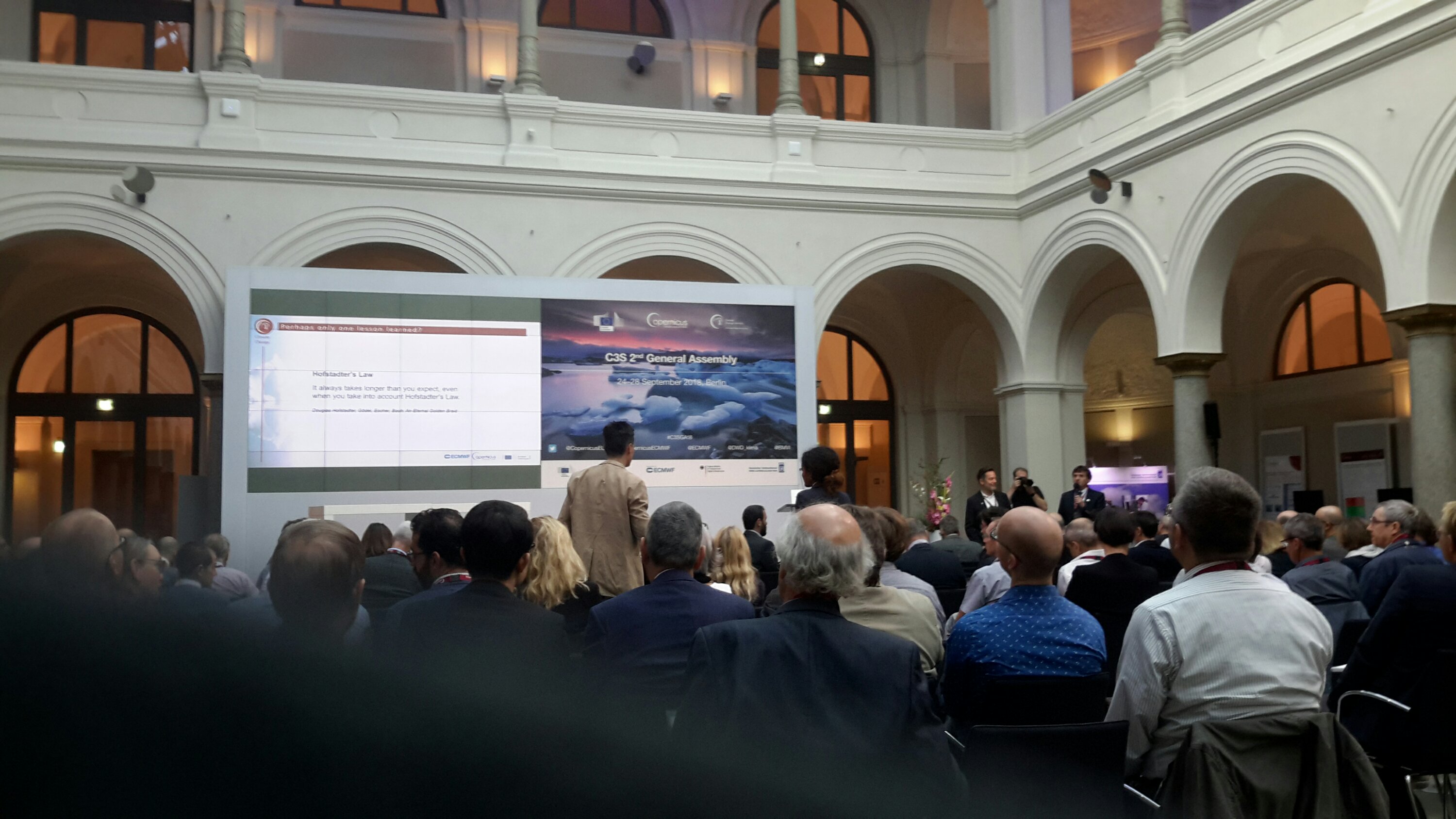This month’s open thread on climate science topics. Dominant theme this month will probably be the release of the IPCC Special Report on 1.5ºC. The final report will be released later this week, and when it does we’ll give a brief summary. The hastag to follow on Twitter is #SR15.
Climate Science
European climate services take an important leap forward
An important milestone was passed during the second general assembly of the Copernicus Climate Change Service, which took place in Berlin on Sept 24-28 (twitter hashtag '#C3SGA18'). The European climate service has become operational, hosted by the European Centre for Medium-Range Forecasts (ECMWF).
[Read more…] about European climate services take an important leap forward
Forced responses: Sep 2018
This thread is the bimonthly open thread for discussion of climate solutions. A good starting point might be this clear description from Glen Peters on the feasibility of staying below 2ºC. Please stick to substantive points and refrain from attacking other commenters (as opposed to their ideas). The open thread for climate science issues is here.
Unforced Variations: Sep 2018
This month’s open thread on climate science topics. We are well into Arctic melt season (so keep track of Neven’s Arctic Sea Ice blog for more info). Another link is the NY Times Daily podcast on the interesting-yet-flawed NYTimes Magazine “Losing Earth” piece (which is useful if you didn’t get around to finishing the written article yet). Remember to please stick to climate science topics on this thread.
Are the heatwaves caused by climate change?
I get a lot of questions about the connection between heatwaves and climate change these days. Particularly about the heatwave that has affected northern Europe this summer. If you live in Japan, South Korea, California, Spain, or Canada, you may have asked the same question.
[Read more…] about Are the heatwaves caused by climate change?
Musing about Losing Earth
The NY Times Magazine has a special issue this weekend on climate change. The main article is “Losing the Earth” by Nathaniel Rich, is premised on the idea that in the period 1979 to 1989 when we basically knew everything we needed to know that climate change was a risk, and the politics had not yet been polarized, we missed our opportunity to act. Stated this way, it would probably be uncontroversial, but since the article puts the blame for this on “human nature”, rather than any actual humans, extensive Twitter discussion ensues…
Unforced Variations: Aug 2018
Does a slow AMOC increase the rate of global warming?
Established understanding of the AMOC (sometimes popularly called Gulf Stream System) says that a weaker AMOC leads to a slightly cooler global mean surface temperature due to changes in ocean heat storage. But now, a new paper in Nature claims the opposite and even predicts a phase of rapid global warming. What’s the story?
By Stefan Rahmstorf and Michael Mann
In 1751, the captain of an English slave-trading ship made a historic discovery. While sailing at latitude 25°N in the subtropical North Atlantic Ocean, Captain Henry Ellis lowered a “bucket sea-gauge” down through the warm surface waters into the deep. By means of a long rope and a system of valves, water from various depths could be brought up to the deck, where its temperature was read from a built-in thermometer. To his surprise Captain Ellis found that the deep water was icy cold.
These were the first ever recorded temperature measurements of the deep ocean. And they revealed what is now known to be a fundamental feature of all the world oceans: deep water is always cold. The warm waters of the tropics and subtropics are confined to a thin layer at the surface; the heat of the sun does not slowly warm up the depths as might be expected. Ellis wrote:
“This experiment, which seem’d at first but mere food for curiosity, became in the interim very useful to us. By its means we supplied our cold bath, and cooled our wines or water at pleasure; which is vastly agreeable to us in this burning climate.”
[Read more…] about Does a slow AMOC increase the rate of global warming?
Model Independence Day
We hold these truths to be self-evident, that all models are created equal, that they are endowed by their Creators with certain unalienable Rights, that among these are a DOI, Runability and Inclusion in the CMIP ensemble mean.
Well, not quite. But it is Independence Day in the US, and coincidentally there is a new discussion paper (Abramowitz et al) (direct link) posted on model independence just posted at Earth System Dynamics.
[Read more…] about Model Independence Day
References
- G. Abramowitz, N. Herger, E. Gutmann, D. Hammerling, R. Knutti, M. Leduc, R. Lorenz, R. Pincus, and G.A. Schmidt, "Model dependence in multi-model climate ensembles: weighting, sub-selection and out-of-sample testing", 2018. http://dx.doi.org/10.5194/esd-2018-51
Unforced Variations: July 2018
This month’s open thread for climate science related topics. The climate policy open thread is here.
